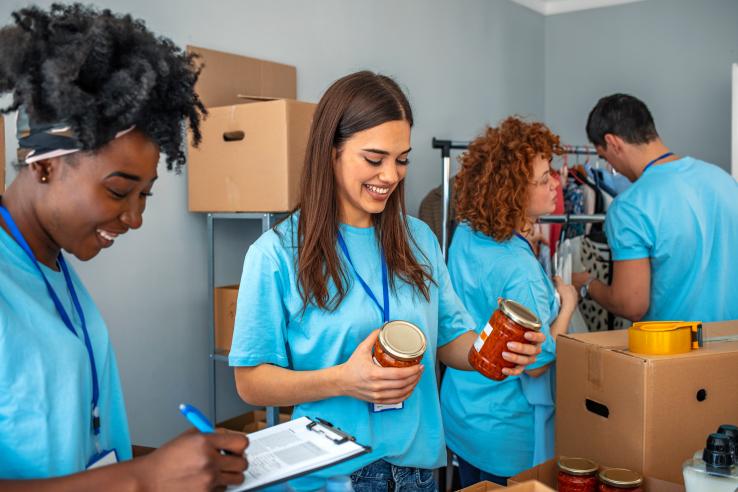June 2020 North America Newsletter

Good afternoon,
June typically marks the beginning of summer for students across the United States. Needless to say, this June is different.
Recently, I have been reflecting on my past summers as I ponder what this summer will be like for students across the country, especially those from low-income households like myself. With these students in mind, I was disheartened to hear that many major cities would be canceling their Summer Youth Employment Programs (SYEPs) this year.
I grew up on the South Side of Chicago in a low-income household. While the neighborhood I lived in was safer than most around me, I knew the difference between the sound of fireworks and that of a gunshot. Prior to the launch of Chicago’s SYEP, One Summer Chicago, I spent my summers at home because there was little to do in the community that didn’t come with a price tag. At home, I could assure my parents I would be safe when they were at work.
In 2011, the launch of One Summer Chicago provided me an opportunity to spend my summer outside of the house. Through the program, I helped run a K-5 reading program at the local library, which doubled as a daycare for parents in the neighborhood who couldn’t afford childcare. I was suddenly caring for half a dozen children for hours every day while trying to get them excited about reading. Though I struggled in the beginning, over time I learned to create a stimulating environment by setting up multiple activity stations the children could rotate through to keep them engaged. I tapped into my experience as an immigrant learning English to come up with not only grade-level appropriate reading materials for native speakers but also more accessible choices for non-native speakers.
One Summer Chicago was a transformational experience in my life. It provided me with the opportunity to engage in a safe and meaningful activity during my summer. At the same time, the responsibility it bestowed on me allowed me to gain new skill sets from event planning to time management. Interacting with those children that summer was one of the reasons I majored in Developmental Psychology in college, which led to me discovering my passion for research. Here at J-PAL now, I find personal meaning in the research on the impact of SYEPs and today's New York Times op-ed by our affiliated professors who led this research. It is my hope that major cities will provide youth with the opportunity to participate in a program as meaningful as One Summer Chicago this year.
Sincerely,
Yiping Li
Policy Associate, J-PAL North America
We at J-PAL North America stand in solidarity with Black communities.
Saving Lives and Investing in Communities by Restoring Summer Jobs
In the midst of the COVID-19 pandemic and the country's awakening to systemic racism, our leaders are looking for ways to effectively support low-income and minority communities. One action mayors across the country can take right now is to restore summer youth employment programs (SYEPs) with safe job opportunities for participants. In today’s New York Times op-ed, J-PAL affiliated researchers Sara Heller and Judd Kessler, discuss the scientific evidence in favor of restoring SYEPs in New York City and beyond. According to their randomized evaluations of programs in Chicago and New York, SYEPs effectively keep youth safe and out of the criminal justice system. Data from Boston and Chicago’s programs also suggest that youth put the wages they earned from SYEPs to good use by contributing to household bills and local businesses. This summer, there may be the added benefit of keeping youth busy with remote work—curbing the spread of COVID-19. Read more »
How can philanthropy support K-12 education during COVID-19?
School closures caused by the COVID-19 pandemic have disrupted the education of millions of students in the United States. Philanthropy can play a vital role in mitigating the negative impact of these disruptions, but how can donors and funders ensure that their resources are being allocated effectively? Using rigorous evidence to cut through the noise can help funders invest in programs that work. J-PAL North America’s education team, Kimberly Dadisman and Caroline Garau, outline several evidence-based recommendations that can help ensure that philanthropists are effectively supporting K-12 education at this time. J-PAL North America staff are available to discuss existing evidence, connect donors to academic researchers, and facilitate introductions between donors and education organizations running effective programs. Please reach out to [email protected] for more information. Read more »
Why small businesses aren’t applying for relief loans, and how we can reach them
Small businesses, especially those run by women and minorities, have taken a catastrophic hit due to the COVID-19 pandemic. As of June 12, the Small Business Administration has approved close to 4.6 million Paycheck Protection Program (PPP) loans, yet more than 13 percent of small business owners do not expect to take out a PPP loan. Due to difficulties filling out complicated forms, confusion about program rules, and uncertainty regarding eligibility, many small business owners may be failing to apply for benefits to which they are entitled. Research around overcoming informational barriers to taking up social protection programs may help address these difficulties and increase take-up of relief loans among small business owners. Evidence-based recommendations include providing application assistance, conducting active outreach to eligible businesses, and simplifying program information and applications. Read more »